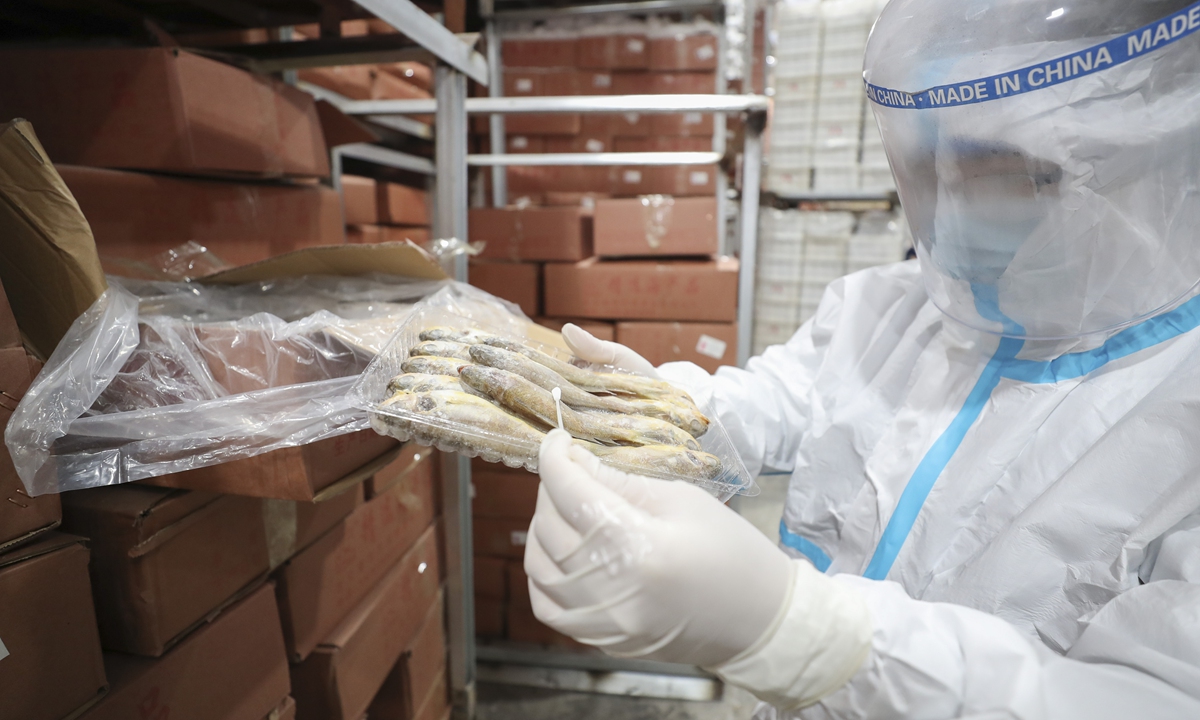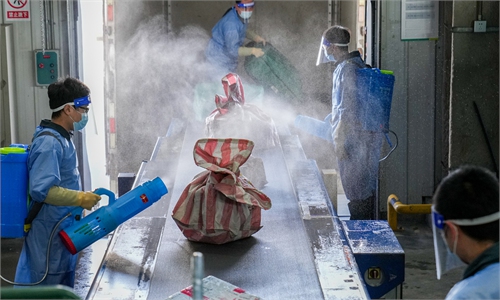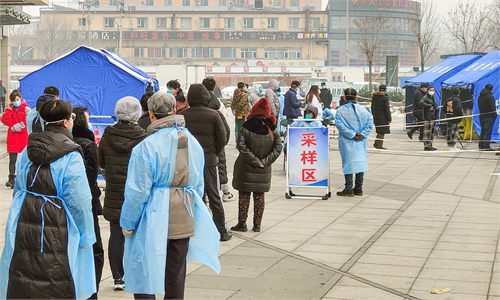
COVID-19 nucleic acid testing staff collect samples from frozen food Photo: VCG
The COVID-19 outbreak with Delta variant in Beijing demonstrated a very clear viral transmission chain with all cases relating to cold-chain food or personnel, Beijing's CDC officials said on Monday as the city has registered a total of 52 cases of COVID-19 fueled with both Delta and Omicron.
Among these reported cases, 6 had the Omicron virus and 46 had the Delta variant, Pang Xinghuo, deputy director of the Beijing's CDC, said at Monday's press conference.
The Delta-related outbreak demonstrated a clear viral transmission chain and source of origin, with all found cases directly or indirectly relating to cold-chain goods or personnel. The outbreak that centered on three cold-chain facilities - two in Fengtai and one in Fangshan - has spread to local communities and working places, but new reported cases were all from an epidemic controlled population, which means "the risk of virus further spreading is controllable," Pang said.
"The Omicron-related outbreak is stable. No new cases were reported yesterday and the outbreak is basically controlled," Pang noted.
Fengtai as the top priority region for epidemic control will organize a second round of mass testing starting from Tuesday. Four regions in Fengtai are now labelled as high- and medium-risk regions for COVID-19, another medium-risk area is in Fangshan district.
Fegntai tested 1.55 million people in its first round of testing. So far four from key groups tested positive for COVID-19, officials said at the press conference.
The Global Times learnt that besides Fengtai, more districts in Beijing also have started testing their residents.
Xu Hejian, the spokesperson for the Beijing municipal government, said that the epidemic in the capital is severe, urging all departments to take the most resolute, decisive, and strict measures to cut off the viral transmission chain. But the overall epidemic situation is still controllable, Xu said.
Starting on Sunday, residents in Beijing who purchased medicines related to fever, cough, infections and dry pharyngeal pain within the past 14 days or in the future are required to take a nucleic acid test within 72 hours.
But health authorities also warned at Monday's press conference that medical institutes should not refuse sick patients with the excuse of improper health code or lack of nucleic acid test results. People living in epidemic-controlled regions will be guaranteed with a proper channel to receive medical treatment if they are in need.
To increase the efficiency of people entering Beijing, the public security department has increased personnel to engage with it and the city government also arranged places where those entering the capital can easily get tested.
Global Times


